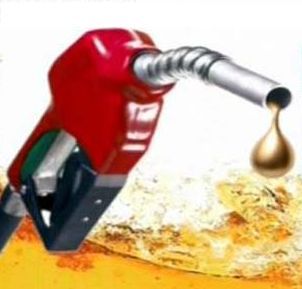Petrol and Diesel Prices : Why High In India?
Petrol and Diesel prices and their hikes are always a hot topic among people. It should be so too; the hike will affect masses in more than one way including the indirect triggering of inflation.
But, is hike in price of Petrol and Diesel under Government Control?
Yes and No! India has to import 84% of the crude oil it requires. Only 16% of the demand is met by the production from Indian soil. This means, the price of Petroleum products in India are fixed on a larger scale by prices in International market and not the Indian Government. If the International crude oil prices are high, then the domestic prices are also directly affected. Adding to the high oil prices, the rupee depreciation against dollar has made the crude imports costlier.
Government of India has de-regualted the price of petrol long before. Diesel price too is on its way of 100% de-regualtion, but subsidies on diesel and kerosene are still running. The resultant loss to Indian Petroleum Distribution companies like IOC, BP, HP etc because of subsidies is filled by govt (again using tax payers money). No subsidy and corresponding reduction in tax amount will also give the same output!
Are Petroleum Prices High In India? And not in other countries?

The prices of diesel and LPG in India are lower than those in Bangladesh, Nepal, Sri Lanka and Pakistan. This means that India government is giving subsidies amounting to Rs.1,60,000 crores from the tax payers money for taxpayers!
But Petrol prices are high in India that most of our neighbors. Apart from lack of subsidy, there is another important factor for high prices of the fuels – Central and State taxes!
Taxing petrol and diesel was necessary for government revenue. Without tax on these fuels, the price will come down to nearly half of the present value, but how can a government run without revenue!
How much is the tax charged by Government on Petrol and Diesel?
In March 2007, tax charged by Central Government (customs and excise tax) per litre of petrol was Rs.14.66, which came down to Rs.9.48 in September 2012. Diesel tax in March 2007 was Rs.4.69 (per litre), which came down to Rs.3.56 in September 2012.
But it is not only the central government which adds tax on these products. Very often several states governments puts higher tax (Sales tax and entry tax summing upto 40%) on petrol and diesel than the centre, causing woes to common people.
So it’s the tax ( Centre + States) which makes the oil price high apart from international price fluctuations.
Why Mr. Finance Minister is not reducing taxes on Petrol and Diesel?
How can government provide roads, railways, hospitals, rural housings, education, health and so on, if they are cut short of revenue supply? True! But two points here – (1) There is a limit upto which common people can be stretched to pay more tax or high price, beyond which unless their income is increased, the burden will be too much. (2) People will be happy to give more tax if they hear less stories of corruption. If they can feel the signs of development in their locality with their tax money, they will be happy to pay more tax and will produce less noise.